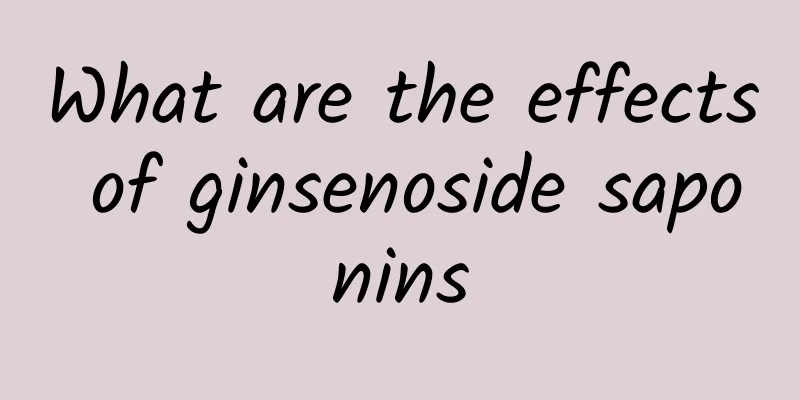What are the uses of the Chinese herbal medicine Luobu Ma?

|
There are many kinds of Chinese medicinal materials in our country, and each of them has its own function. However, people's understanding of traditional Chinese medicine is still not as deep as that of Western medicine, so when faced with the treatment of some diseases, they will still choose Western medicine. Despite this, the effectiveness of traditional Chinese medicine in treating diseases cannot be underestimated. So the question is, what effect can the Chinese herbal medicine Luobu Ma play in clinical practice? Medicinal value Flavor Bitter and sweet, cool. ① "Shaanxi Chinese Herbal Medicine": "It has a light and astringent taste, is cool in nature, and is slightly toxic." ② "Xinjiang Chinese Herbal Medicine Handbook": "It tastes sweet and bitter, is neutral in nature, and is slightly toxic." Meridians It enters the liver meridian. Function and indications Soothes the liver and calms the mind, clears away heat and promotes diuresis. Used for liver yang vertigo, palpitations, insomnia, edema and oliguria; hypertension, neurasthenia, and edema caused by nephritis. Additional prescription ① Treat abdominal distension caused by hepatitis: 2 qian of Lophatherum gracile, 1.5 qian of Melon stem, 2 qian of Corydalis yanhusuo, 1 qian of Clove, and 3 qian of Costusroot. Grind them into powder, take 5 fen at a time, twice a day, with warm water. (Handbook of Traditional Chinese Medicine in Xinjiang) ②Treat neurasthenia, dizziness, sequelae of concussion, palpitations, insomnia, hypertension, ascites due to liver cirrhosis, and edema: 1 to 3 grams of Luobu Ma. Brew with boiling water and drink as tea, do not boil. (Handbook of Traditional Chinese Medicine in Xinjiang) Clinical Application ①Treatment of hypertension Use 1-2 qian of Luobu Ma leaves every day, soak them in boiling water and drink them as tea; or decoct them and take them at regular times in the morning and evening. A total of 596 cases were treated, of which 169 were treated with Luobu Ma leaves alone; 427 cases were treated with Luobu Ma leaves instead because other antihypertensive drugs had unstable effects, or antihypertensive drugs were used together with Luobu Ma leaves, and Luobu Ma leaves were used to consolidate the effects after the blood pressure dropped to a certain level. As a result, 254 cases had their symptoms disappear or significantly alleviated, and 212 cases had their symptoms alleviated; among them, 143 people had their blood pressure drop below 140/90 mmHg, and 268 people had their systolic or diastolic blood pressure drop by more than 20 mmHg. The effective rate is 88.59%. The longer the time of taking Luobu Ma tea, the higher the therapeutic effect, which can reach 93.3% for more than half a year; but there is no obvious relationship between the therapeutic effect of Luobu Ma and the length of the disease. It has a good effect in relieving headaches, dizziness, brain swelling, insomnia, dreaminess and edema. This medicine is more suitable for patients in stages I and II; or as an auxiliary agent for the treatment of hypertension, it has a good effect on improving symptoms. Side effects: Most common are intestinal rumbling and diarrhea; occasionally there is stomach pain, poor appetite, dry mouth, and bitter taste in the mouth; some people may experience asthma or liver pain. ②Treatment of heart failure Take 5 qian (about 16 g) of dried Apocynum venetum root (chopped), add about 300 ml of water, soak for 12 hours, then simmer for 1 hour, cool and filter to obtain about 200 ml of filtrate, add a little paraben to make an 80% decoction. All patients with grade II or grade III congestive heart failure admitted to the hospital should be given 100 ml of the decoction twice a day. When the heart rate drops to 70-80 beats/minute, change to the maintenance dose, once a day, about 50 ml each time. Fifty patients with chronic congestive heart failure were observed, and the cardiotonic effect was analyzed 3 to 5 days after medication. The results showed that 31 patients were markedly effective (symptoms and signs were significantly alleviated, and the heart rate slowed to the normal range), 16 patients were effective (symptoms and signs improved to a certain extent, and the heart rate slowed but not to normal), and 3 patients were ineffective. In most cases, the patient's heart rate gradually dropped to below 80 beats within 3 days after taking the medicine. The fastest one returned to normal after taking the medicine twice, and the slowest one returned to normal after 5 days. After returning to normal, other symptoms and signs of heart failure generally improve significantly or disappear. After that, switch to maintenance dose. After taking the medicine, some patients showed digitalis effect-like changes on the electrocardiogram, with the ST segment descending obliquely and merging with the anterior segment of the T wave. Side effects and toxic reactions: Mainly in the digestive tract, with nausea and diarrhea being the most common. If the dosage can be reduced in time, the reaction may be alleviated or disappear, otherwise it will continue to develop and vomiting may occur. The main cardiac side effects are bradycardia and premature contractions, which will disappear after timely discontinuation of the drug. |
<<: Things to note on the first day of delivery
>>: Can Bidens pilosa lower blood pressure?
Recommend
Can’t eat eggs and soy milk together? You must know these 5 truths about eggs!
During the stay-at-home period, every refrigerato...
Effects and functions of rusty-leaved wild peony
Rusty-leaved wild peony can not only supplement t...
The efficacy and function of the pointed ear guanzhong
Although Western medicine and Western drugs are m...
Summer is coming, is it reliable to lose weight by sleeping?
Summer is coming, and losing weight is becoming a...
20 satellites in one rocket! The successful launch of Jielong-3 injects new momentum into commercial aerospace!
At 3:24 on December 6, the Jielong-3 carrier rock...
Guess lantern riddles during the Lantern Festival! Here’s a secret tip for guessing riddles…
Guessing lantern riddles is a fun activity during...
After staying up late for three days, the 28-year-old man felt so painful that he wanted to bang his head against the wall! Be careful of this virus, once infected, you will carry it for life!
It’s clearly time to go to bed, but I don’t want ...
The efficacy and function of deer ear feather root
There are so many medicinal herbs in the world, a...
The efficacy and function of Gassho
Gassho is a very common Chinese medicinal materia...
What is the traditional Chinese medicine prescription for replenishing kidney yang deficiency?
Kidney deficiency is a very common phenomenon. Bo...
The efficacy and function of small arrow grass
Arrow grass is a medicinal material. If we have s...
How to drink wolfberry in water?
When it comes to wolfberries, everyone must be fa...
The efficacy and function of duck foot tea
There are so many medicinal herbs in the world, a...
What are the medicinal values of Sichuan Cyathula?
Sichuan Cyathula is a plant belonging to the Amar...
Medicinal value of Panax notoginseng
Panax notoginseng can be used as a medicine, so y...









